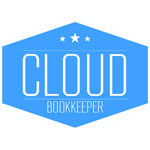It’s about that time of the year when your clients start planning their annual Christmas parties! The great news is that the cost of a staff party or other annual entertainment may be allowed as a deduction for tax purposes.
As an employer you can pay for an annual event, and there are no personal tax implications if the total does not exceed £150 per head. This doesn’t need to be one Christmas event either, just ‘annual’. So you could have a Christmas party and a Summer party, and both would be allowable for tax purposes provided the total of both does not exceed the £150 per head limit. If you spend just £1 over the £150 limit, then the whole amount becomes a benefit in kind. Here are the rules:
- the event must be open to all employees
- the cost is only tax deductible for employees and directors of a limited company, but not for sole traders
- an annual event offered to staff is not taxable on those attending provided that the cost per head does not exceed £150
- all costs must be taken into account including VAT, costs of travel to and from the event and accommodation provided. If the limit is exceeded then individuals will be taxed on the full cost per head. And there will be no taxable deduction for the company.
You can also provide a small gift to the employees as an employer, they are allowed to provide each team members with a gift, such as a bottle of wine or box of chocolates. These gifts are considered to be trivial and as such are not taxable.
To read the HMRC guidance please use the link below:



